What AI art means for society, according to Yale experts
Will AI art elevate human creativity? Will AI be a tool or a replacement for artists? Is AI art, art? Yale experts weigh in.
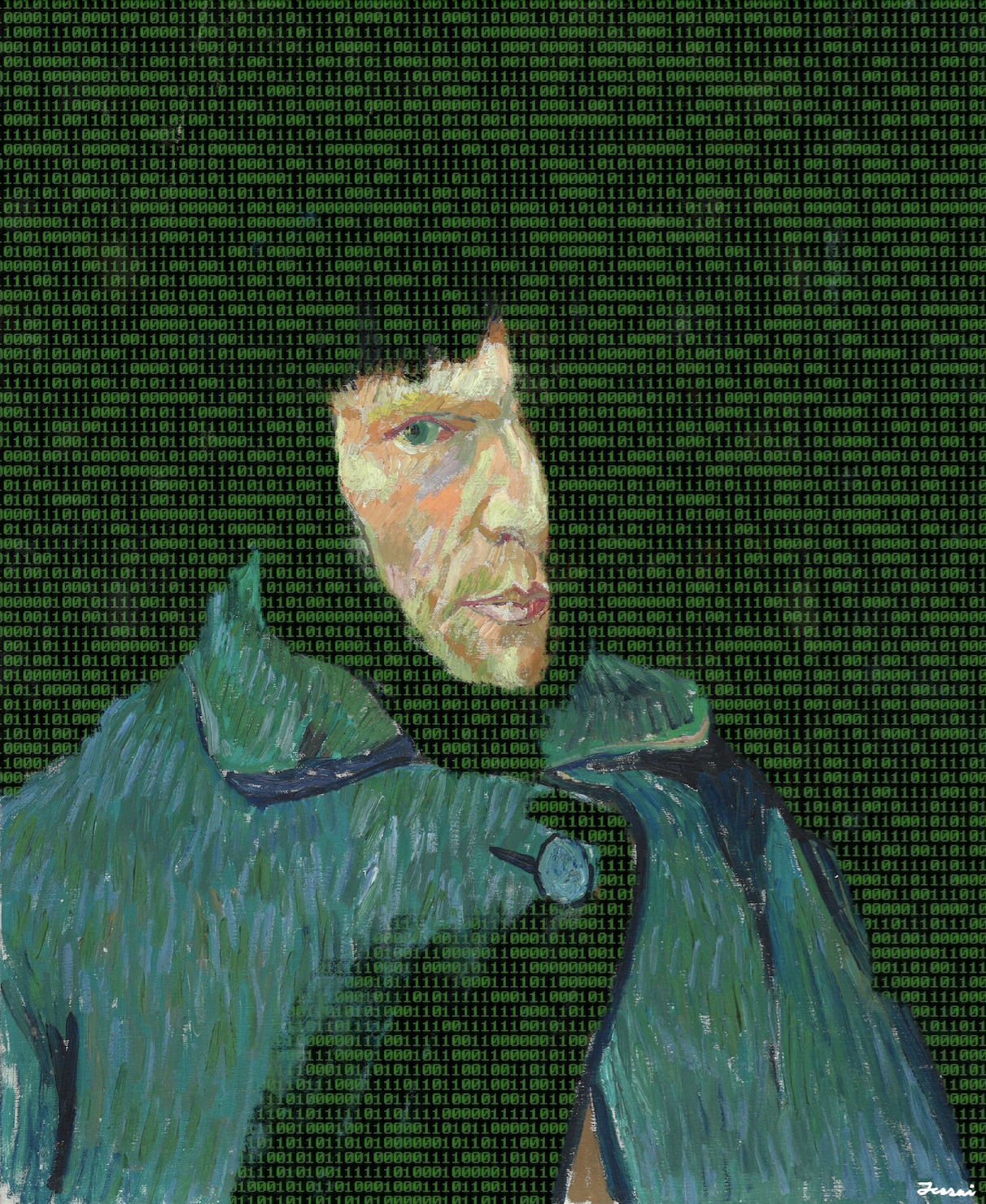
Jessai Flores, Illustrations Editor
For “AI artists,” the art-making process involves figuring out what string of words will generate the best image — not what colors to mix or brush strokes to try.
Even the artistically challenged can produce decent, sometimes deceptive, images using artificial intelligence text-to-image generators. In a survey of 504 Yale undergraduates, respondents could tell if art was AI-generated or human-made an average of 54 percent of the time.
Yale experts — from artists to AI researchers to legal scholars — weighed in on the impending effect of AI art on society.
How does AI generate art?
Artificial intelligence is designed to simulate human intelligence through computer systems. Programmed to synthesize information, recognize patterns and make decisions, these systems can complete tasks associated with human intelligence.
Current AI text-to-image generators, such as DALL-E 2 or Midjourney, are trained to mimic human artistic ability. The generator “learns” a particular style or aesthetic by analyzing datasets containing thousands to millions of images. By understanding the relationships between visual information and their corresponding text descriptions, the system can create its own images in response to text prompts.
The following image was generated in Midjourney by submitting the prompt: “A Yale class taught by Anderson Cooper wearing jorts.”
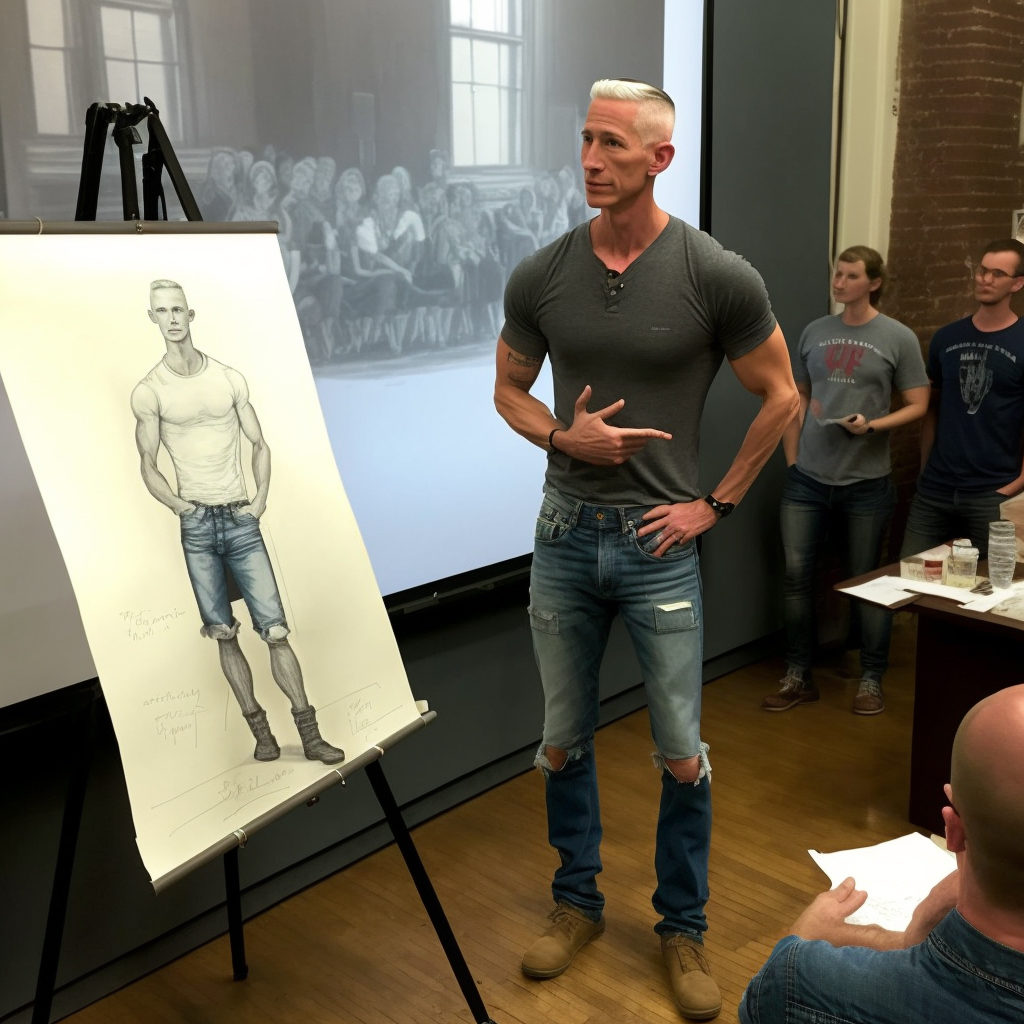
Will AI be a tool or a replacement for artists?
AI art is both winning art contests and sparking lawsuits, inspiring a mix of awe and anxiety. Some call AI art generators “anti-artist,” citing the machines’ reliance on human artists’ work — obtained without compensation or consent — for training. Users of AI art generators can even directly ask the AI to generate art in the style of a human artist, such as digital artist Greg Rutkowski.
“All of this art is taken without the consent of these artists and the laws that exist are not really protecting them,” Ron Cheng ’25, a Yale Visual Arts Collective board member, said. “I think that there are enough artists out there where there shouldn’t really be a need to make AI to do that.”
Rather than a replacement, Cheng views AI as a tool, not advanced enough to push the art field forward without human artistry. For non-artists, Cheng explained, AI could be useful as a tool for creative expression, however not at the cost of people who spend their lives honing these skills.
Brennan Buck, a senior critic at the Yale School of Architecture and a practicing architect, uses AI as a tool. During the concept stage of a project, AI can help him colorize or upscale images. These minor contributions have no impact on the creative or conceptual parts of the design process, he explained.
“I think ultimately, AI is not a real threat to artists, particularly because it can be rambunctious and you don’t have necessarily the same control over the design from an AI generator that you might from working with a designer,” Alex Taranto ’23, Yale Visual Artists Collective’s treasurer, said.
Taranto admitted that AI is already impacting the art industry in some cases. However, she would be shocked if it reached the “celebrity” realm of art, including the Blue-Chip galleries, which sell highly-valued work by established artists. AI is more commonly being used to generate art for video games and for commercial art. In June 2022, Cosmopolitan unveiled “the world’s first” completely AI-generated magazine cover.
To some artists, the greatest harm posed by AI is damage to their reputation. AI art generators are changing the way people view art, according to Cheng, a visual artist and computer science major. Artists are already viewed as a “lower class,” he said, “unless you are Van Gogh.” The act of AI replicating a skilled artists’ work creates the perception that art is easy to create and proliferate, and therefore less valuable.
“What’s more important is the utter disrespect these AI ‘artists’ promote against the community and art as a craft, which is already extremely undervalued in modern day,” Kim Lagunas ’25, a student artist, said.
Artists sue AI art generators
Last week, three artists filed a class-action lawsuit against top AI art generators, including Stability AI, Midjourney and DeviantArt. The artists claimed that the AI companies were using copyrighted images to train their algorithms without asking for consent or offering compensation.
To Lagunas, whose art focuses on 3D modeling, AI art represents a nonconsensual collage of other artists’ work. Lagunas described it as essentially “screenshotting” artists’ work without their consent, then slapping it together and claiming ownership over the final product. Lagunas worries about the continued advancement of AI art generating software, but sees potential for it to be helpful to artists if subject to the same copyright laws as music.
“As for the concept of AI art, I find it pretty cool if it’s consensual and credits the actual original artist,” Lagunas said. “Essentially treat it like how music [or] songs are nowadays, if an AI put together all the works of the top fifty artists and amalgamated everything together into a song and uploaded, you best believe all those artists would get credit, commission payment and royalties.”
Cheng similarly expressed a need to compensate artists for their contributions to the AI. While most of the current funding in AI art supports developing the algorithms and to pay for the processing power to create these images, it is human art that enables AI to achieve a certain quality.
Cheng imagines a system where artists could submit their art into different categories, such as oil painting. If submitting work for a category such as “charcoal images of animals,” usage of this prompt could be analyzed and used to distribute pay accordingly. However, he admitted that this would likely not amount to “a lot of pay” because of the large number of images needed to generate each image.
“I think in a world where it wasn’t necessarily so capitalist, so consumerist, I think AI could just very naturally be something for good,” Cheng said. “Where artists are not starving, and their work is not being stolen to create something so that [others] can pay artists even less.”
The topic of AI is no stranger to fear and suspicion, but concern over theft of artists’ work has nothing to do with AI and everything to do with distributive justice, according to Amin Ebrahimi Afrouzi, a resident research scholar who researches the ethics of computing at Yale Law School’s Information Society Project.
Ebrahimi Afrouzi, who co-invented Collaborative AI, recommended thinking of AI as a “piece of a code,” a tool used by its owners for specific purposes. The owners are the ones actively using someone else’s data — whether for reading, copying, manipulating or collaging — to create new work. The fact that the tool used is AI is irrelevant to the issue of copyright and to the ethics of this technology.
The main question becomes how money gained from AI art should be distributed between the creators of the AI and the artists whose work the AI scraped.
“The answers here, as in traditional questions of copyright, will likely differ in each case and will depend on both the degree the AI exploits particular pieces of existing art and the use the final product is put to,” Ebrahimi Afrouzi said.
Buck expressed that the creative use of AI without attribution is a “real concern” and will change the way cultural labor is compensated. While sampling from other work is not new to the creative process, normally the sources used would be cited. By contrast, it is difficult to know exactly what images AI models are drawing from and to what extent each individual image comes into play. However, he is not concerned about his own design work being used in these models.
“I wouldn’t request to be pulled from the data sets,” Buck said. “I think the ways that something I make might inform a new image or something that AI hopes to create is so diffuse and sort of broad that I’m not worried about it. That could change.”
Could AI elevate human creativity?
Buck thinks that AI is changing how artists imagine what can be made, but would not replace the entirety of the design process.
Rather than “replacing” human creativity, Buck views AI as “displacing” it. The architect described AI as a form of “mediation,” similar to other technologies like a pencil or paint, and software like Photoshop and 3D modeling. AI serves as a filter which humans “look through” and “create through,” Buck explained, and is already a part of cameras, software for editing photos, Google search and a variety of other platforms that affect how humans see the world.
“It’s not that it is or will replace human creativity but that it will change how humans are creative and how art is produced,” Buck said. “[AI is] another way in which what we make is filtered through all the different technologies we use.”
Nisheeth Vishnoi, A. Bartlett Giamatti professor of computer science and co-founder of the Computation and Society Initiative, thinks that AI could add to the creativity of human artists, “perhaps indirectly.”
“It is likely that AI will discover new types of art forms which are visually appealing,” Vishnoi said. “However, the popularity of art, the price of art and artistic styles is a very human-driven process. And I’m not sure how AI itself is going to enter and capture that.”
AI is already creating “new” art, Vishnoi explained, generating synthetic faces of people who do not exist, and art that does not exist. It is possible AI could discover new paradigms or types of art, Vishnoi added, similar to past instances of AI algorithms which, when trained on human-played games, had discovered “fundamentally new” strategies. However human artists “may try to belittle” the value of such creations, no matter how sophisticated, he noted.
Whether art is considered both visually appealing and culturally important is subject to bias. Vishnoi pointed to a history of humans from one group or culture disapproving of art generated by humans of another background, displaying a reluctance to diversity.
“For the last thousand years or so, art has been evolving and that’s mostly been done by humans,” Vishnoi said. “So with AI coming into play, I expect things to get more creative.”
Cheng, drawing on his own intuition as a digital artist, emphasized the line between what he considers illustration versus art. While AI could represent tangible concepts through illustration, it could not create an artistic work that represents and sparks authentic criticism of the world. To Cheng, AI does not produce true art.
AI will raise the bar for illustration, Cheng added, with illustrators no longer being able to rely on photorealistic work for fear of comparison to AI-generated images. He referred to an artist named Ben Moran who had been banned from the “r/Art” subreddit on Reddit because moderators thought that Moran’s human-made surrealist digital art was AI-generated.
The value given to human creativity ranges from “menial to artistic genius,” Ebrahimi Afrouzi explained. He predicts that AI art will displace some forms of human creativity, namely the menial tasks “already relegated to stock photos.”
“I don’t know many human artists that aspire to do the menial, which I think will be what AI ends up replacing,” Ebrahimi Afrouzi said. “But it is true that many human artists rely on the creation of the menial as a way of making ends meet and funding the truly genius. This is already a sad state of affairs and is an immense burden on the possibility of human creativity.”
As opposed to stopping the development of AI art, society should address the status quo of artists’ dependence on menial tasks, Ebrahimi Afrouzi argued. The pressure for artists to devote their lives to menial art as a means of survival is counter to the advancement of human creativity, he said, adding that funding should be provided to help artists dedicate their time and effort to achieving art that society truly values.
Is AI-generated art, art?
In August, an AI-generated piece of art called “Théâtre D’opéra Spatial” won first place in the “digitally manipulated photography” category at the Colorado State Fair’s art competition. It inspired debate over AI’s evolving role in art.
“I’m not sure that the jury made the wrong choice in selecting the AI generated art, but I think it might affect how they judge future years’ competitions,” Buck said. “It might then be less about technical virtuosity and more about some other idea — the effects of the art or what the art has to say about the world.”
To Buck, AI might change how humans think about art, and what “good art” is thought to be.
Vishnoi compared AI art to asking ChatGPT, an AI chatbot, to write a short poem. While the chatbot may be able to write a better poem than many people, this poem would not necessarily be publishable or a candidate for a Nobel Prize in literature.
“At the highest level, art is a form of emotional communication,” Vishnoi said. “That is incredibly complicated, and there seems to be no straightforward way to capture it in image recognition or image generation algorithms.”
Cheng views art as heavily dependent on the artist’s lived experiences. AI does not analyze the world around it or come up with its own criticism of it — it has no individual lived experience to guide its creativity. Until a robot is built who can face discrimination or learn how grief and loss feel, among other human experiences, Cheng does not believe AI can replicate art.
To Ebrahimi Afrouzi, the question of whether AI art is an art is complicated by conflicting definitions of art. To some, art is the product of human creativity, while to others, art could be an object found in nature. He suggested framing the question around AI itself: is AI an art or craft?
Given how AI generates images, Ebrahimi Afrouzi classified AI as a “craft.” AI art, which he described as existing in its own category, is unique to itself, and fundamentally different from what human artists create.
“So the right answer to your question is ‘no,’” Ebrahimi Afrouzi said. “AI art is AI art.”
Can Yale students tell AI-generated art apart from human-made art?
As AI art generators grow in sophistication, the potential to deceive observers follows.
A survey was created to gauge how easily Yale students could discern whether art was generated by AI or a human. Respondents were asked to judge nine different artworks — a mixture of AI-generated and human-made pieces. On average, the 504 undergraduates surveyed could tell if art was AI-generated or human-made an average of 54 percent of the time. This translates to roughly five correct answers out of nine questions.
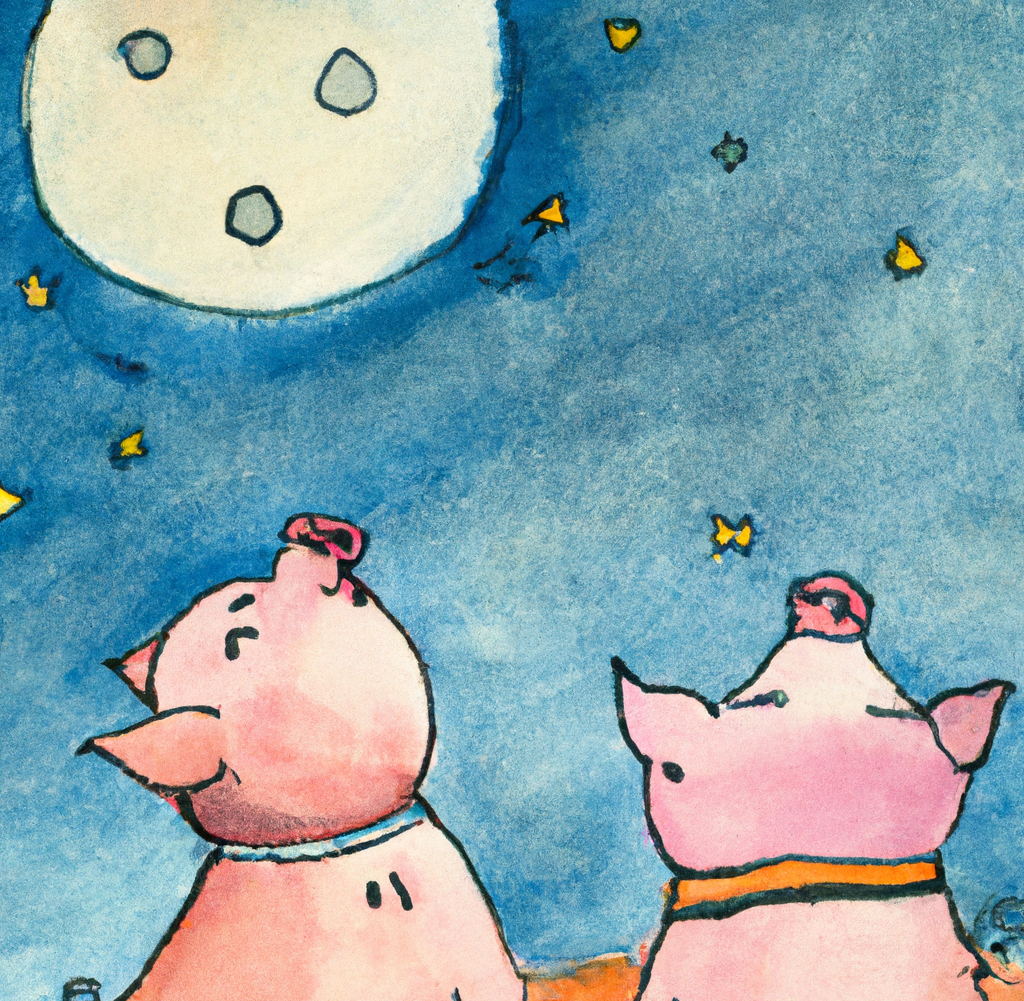
The prompt, “two pigs staring up at the moon, watercolor painting,” was plugged into DALL-E 2, an AI image generator, generating the image above. 81 percent of Yale undergraduates thought that this image was drawn by a human.
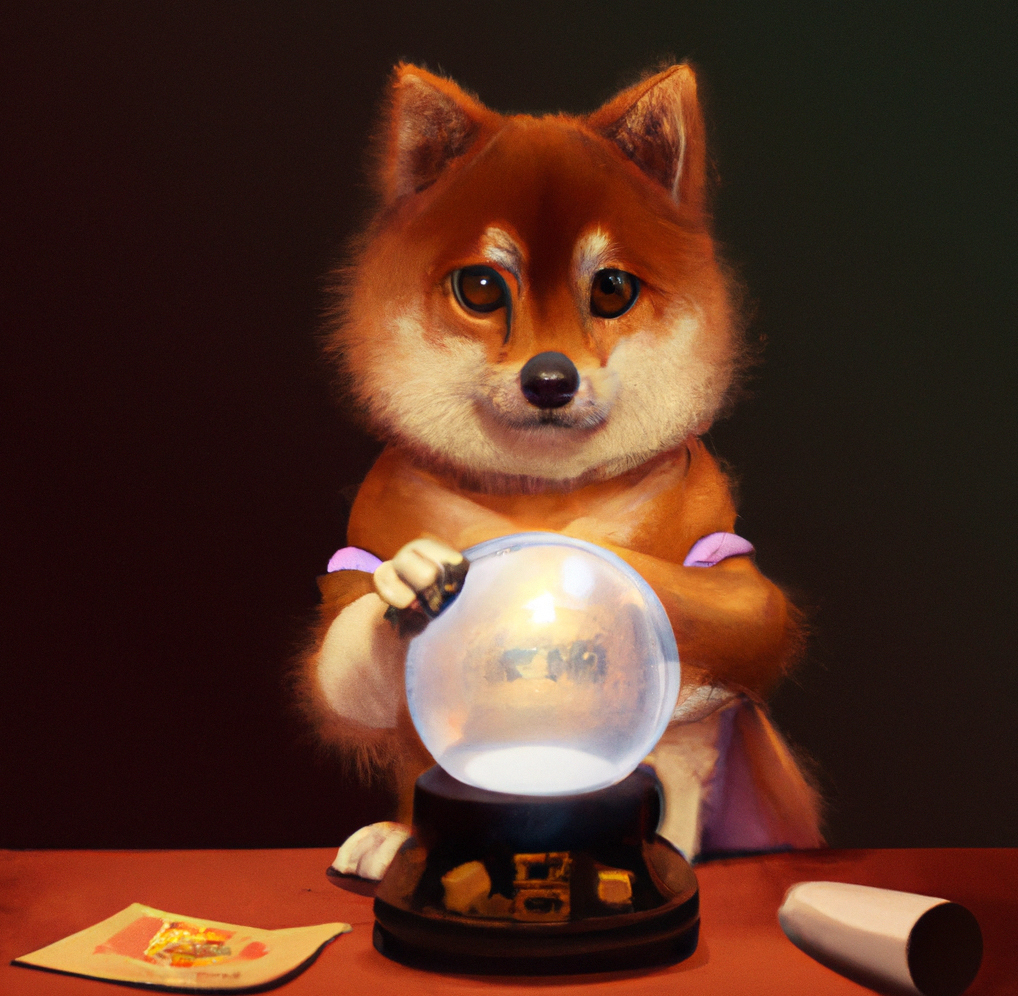
While the previous AI artwork confused respondents, this artwork was correctly guessed to be AI-generated by 86 percent of respondents. The prompt, “a fortune-telling shiba inu reading your fate in a crystal ball digital art,” was plugged into DALL-E 2 to produce the image above. Notably, the shiba inu’s left pupil is missing, along with other minor oddities.
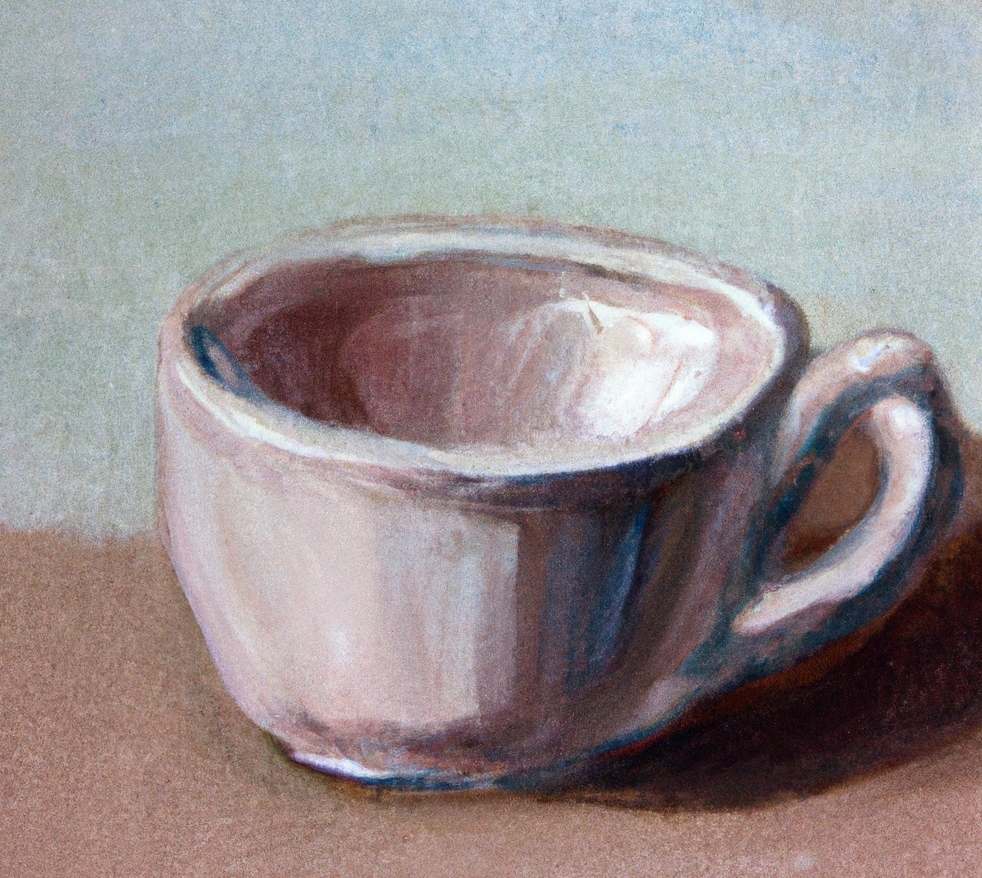
This AI-generated artwork, generated with the prompt “An empty teacup, oil painting,” tripped up 59 percent of respondents who thought it was human-made.
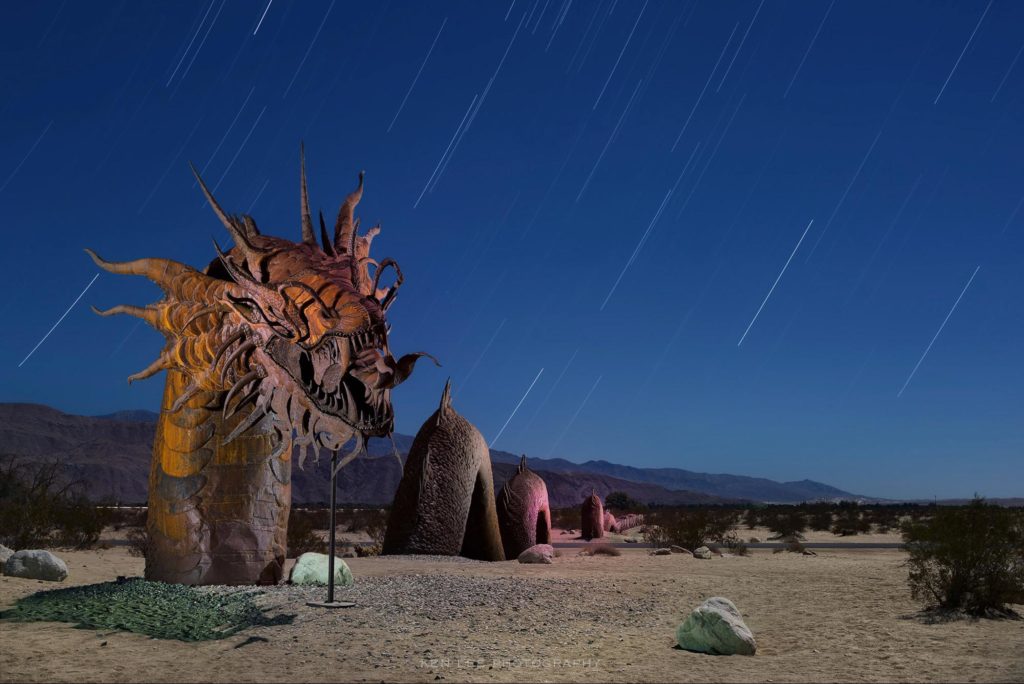
The human-made piece that confused the most respondents in the survey was created by an artist named Ken Lee, who specializes in long exposure photography and has been published in numerous magazines. In a survey of 504 Yale undergraduates, 66 percent thought that Lee’s artwork was AI-generated. Lee was not surprised.
“The photo is unusual. Let’s face it, it’s weird looking,” Lee said.
Most people do not have knowledge of advanced techniques used by photographers, he noted, including long exposure night photography and light painting, and may therefore assume that art that uses such techniques is “fake.” Lee added that some photographers use AI to edit photos, whether for changing backdrops or even shifting people’s poses in portraits. A lot have started using AI cartoonizer for a fun twist to the photos.
“My tinge of sadness is more about the state of affairs,” Lee wrote to the News in an email. “People already have a deep mistrust for photography. Already, “Photoshop” is used as a verb: ‘I wonder if that’s Photoshopped?’ In the not-so-distant future, we might say, ‘Not sure if it’s real … that could be totally Midjourneyed!’”
Lee expressed concern over the increasing mistrust and suspicion in society, which extends to the news, science and beyond. To Lee, AI-generated art only adds to humanity’s already present difficulty to discern what is real from what is not.
How to tell if art is AI-generated: Tips from a perfect scorer
Taranto was one of only two students to score a perfect nine-out-of-nine on the survey.
According to Taranto, AI-generated work often lacks logic within the composition. Taranto referenced an AI-generated stained glass window she saw recently, which showcased mushrooms and forest foliage. However, looking closer at the stems of the mushrooms and the branches of trees, she saw that branches were coming out of “the middle of nowhere” and were tangled up with no sense of where they originated or what direction they were going. Some were severed in the middle.
“I’m not sure if the technology behind these generators has caught up yet in order to mitigate those moments of confusion or unreason,” Taranto said.
AI-generated pieces also have a “fuzzy sort of quality” at the edges and in the overlap of certain subjects within the composition, Taranto explained. There are often areas of discoloration randomly appearing in the pieces. AI art commonly defies certain fundamentals of design, including the grid rule and the establishment of points of focus within the piece.
Cheng further explained that AI art generators have difficulty generating text and fine details like faces and hands.
Noting these common mistakes, student artist Cailin Hoang ’25 thinks the images generated by AI would have to be further rendered or perfected by an artist to be believable. Until AI advances past these issues, she said, it may encounter difficulty being a standalone substitute for artists.
AARON is regarded as one of the first AI art generators and was developed by Harold Cohen in the late 1960s.







